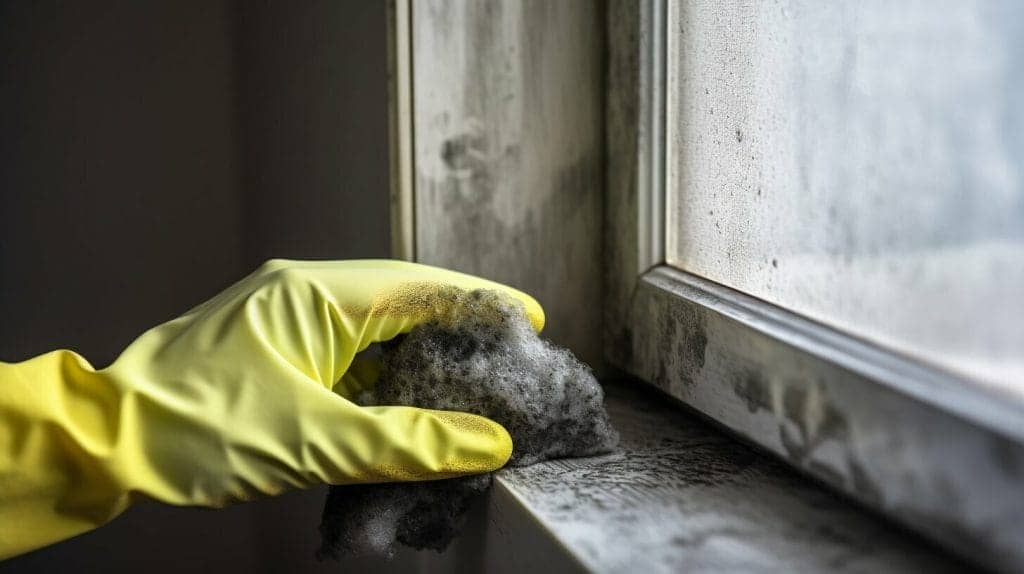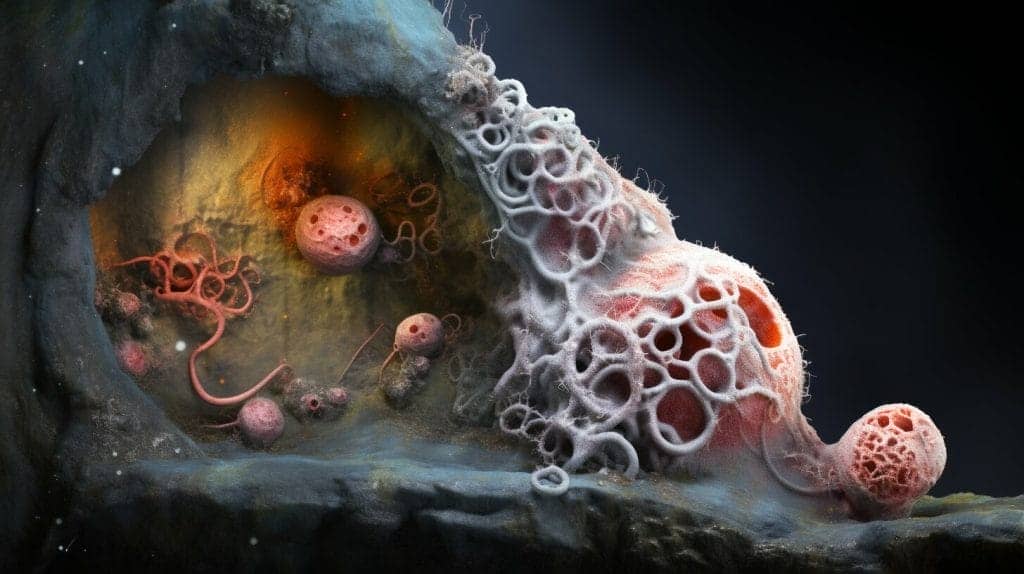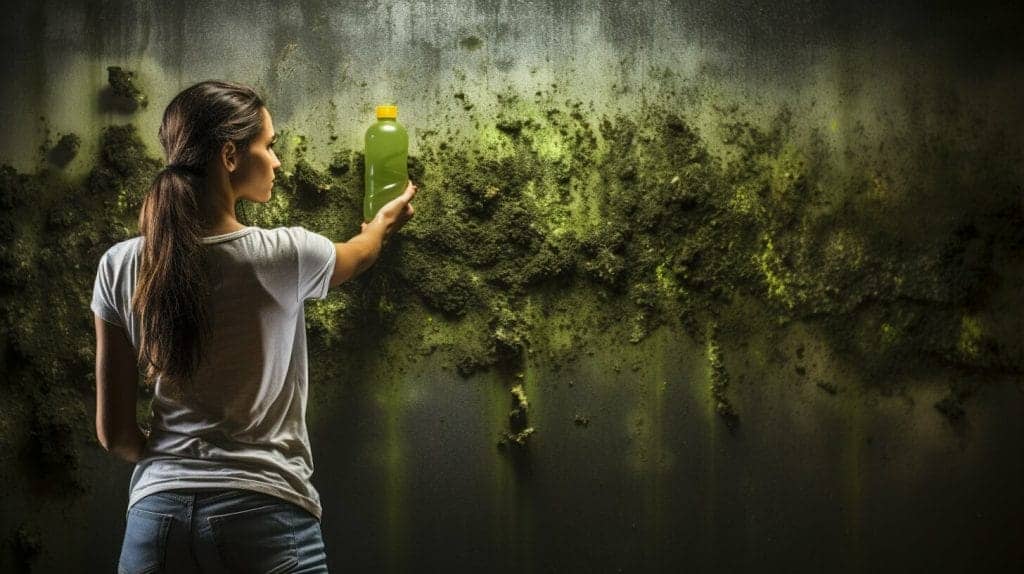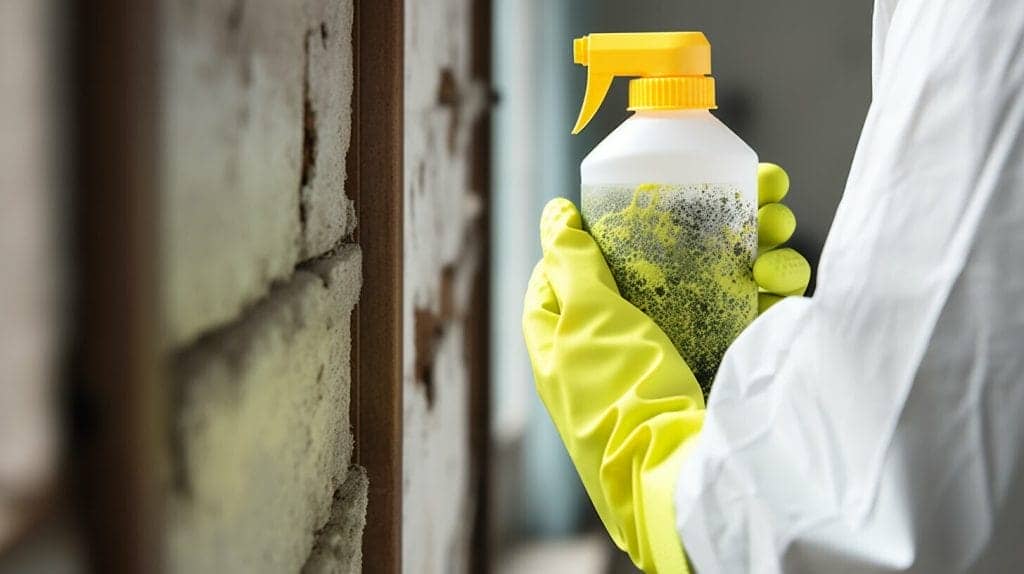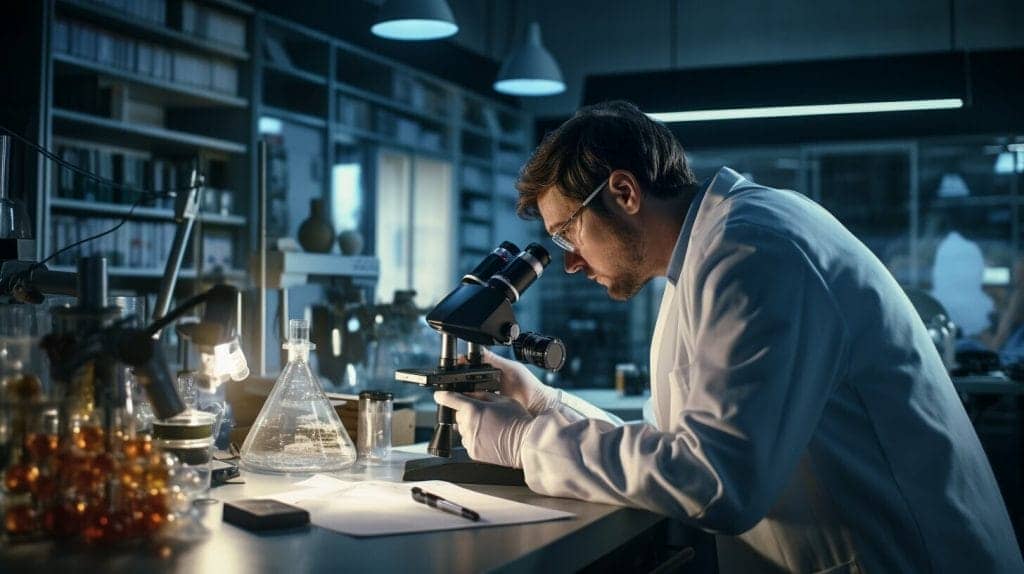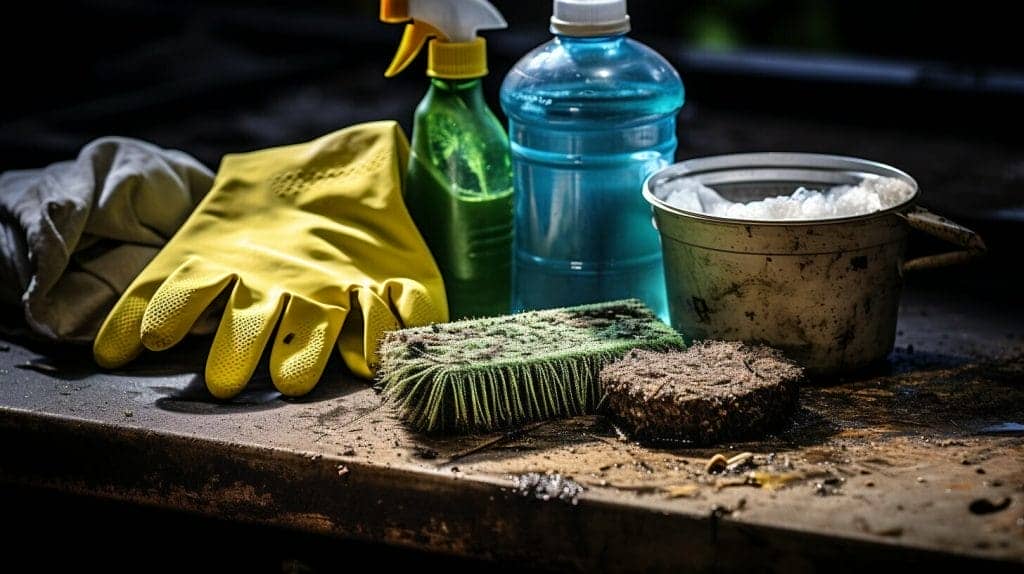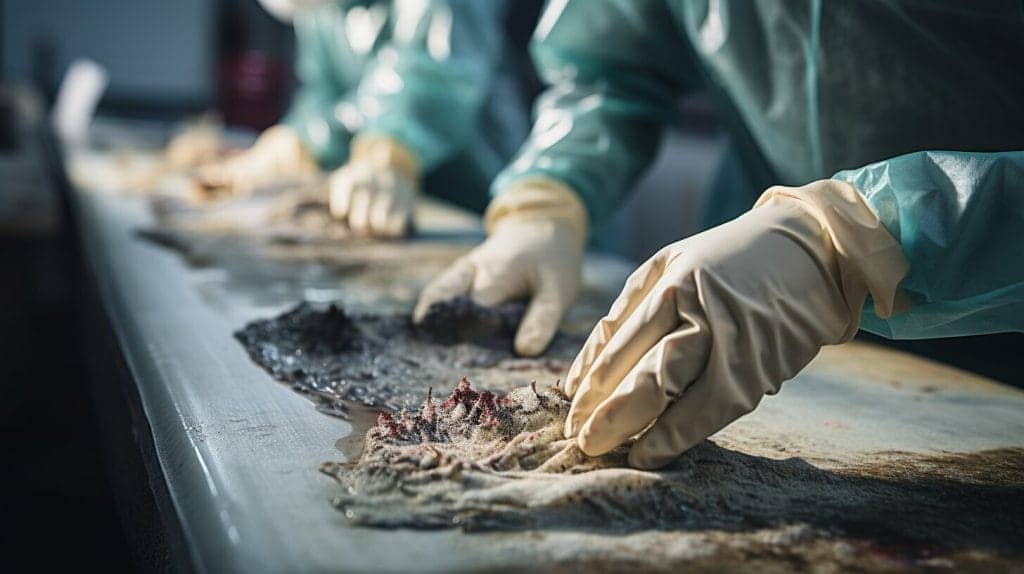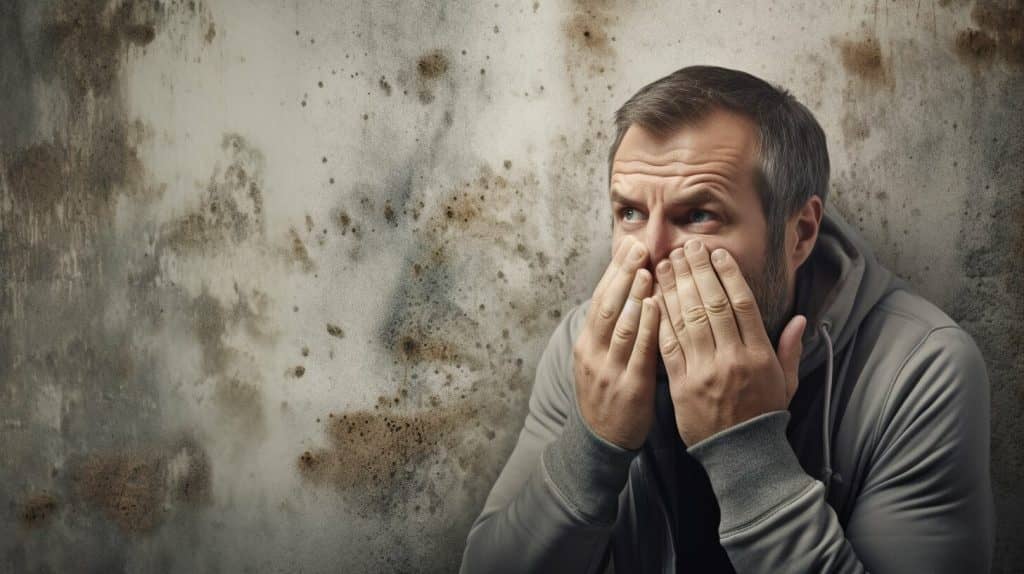Mold exposure is a serious concern that can result in a range of health conditions. In some cases, mold exposure can lead to long-term illnesses that require specialized medical attention. That’s where mold-related illness clinics come in.
These clinics specialize in diagnosing and treating mold-related illnesses, providing patients with the care and support they need to overcome their symptoms and improve their health. From testing and diagnosis to treatment and recovery, mold-related illness clinics offer comprehensive services that can make a real difference in patients’ lives.
Key Takeaways:
- Mold-related illness clinics offer specialized medical attention for individuals affected by mold exposure.
- These clinics provide comprehensive services, including testing, diagnosis, treatment, and recovery protocols.
- Mold-related illness clinics can make a real difference in improving patients’ health and well-being.
Understanding Mold-Related Illnesses
Mold-related illnesses can pose serious health risks to individuals exposed to mold in their environment. These illnesses can stem from exposure to a variety of different types of mold, including but not limited to, Stachybotrys, Aspergillus, and Penicillium.
Common symptoms of mold-related illnesses include respiratory problems, skin irritation, and cognitive issues. These symptoms can range from mild to severe, and can even become life-threatening.
When exposed to mold, individuals with weakened immune systems, allergies, or pre-existing respiratory conditions are particularly at risk for developing mold-related illnesses. In addition to these individuals, those who work in environments with high levels of mold, such as construction workers or farmers, are also at an increased risk.
There are numerous health conditions that can arise from mold exposure, including but not limited to, asthma, sinusitis, chronic obstructive pulmonary disease (COPD), and even cancer. It is important to understand the potential risks associated with mold exposure and to seek medical attention if symptoms arise.
Mold Toxicity Specialists
When it comes to diagnosing and treating mold-related illnesses, it’s crucial to seek medical professionals with expertise in this area. Mold toxicity specialists are trained to recognize the signs and symptoms of mold-related illnesses, and to provide effective treatment and care to those affected.
These specialists are typically medical doctors who have received additional training in environmental medicine, toxicology, and related fields. They are skilled in identifying the root cause of mold-related illnesses and developing personalized treatment plans to address the unique needs of each patient.
| Name | Description |
|---|---|
| Dr. Jill Crista | A Naturopathic Doctor specializing in the treatment of mold-related illnesses using natural methods. |
| Dr. Neil Nathan | A Board Certified Family Physician and author who specializes in treating complex medical issues, including those related to mold toxicity. |
| Dr. Scott McMahon | A Clinical Professor of Medicine at the University of Washington who specializes in environmental and occupational medicine, including the diagnosis and treatment of mold-related illnesses. |
There are many mold toxicity specialists located throughout the United States, and patients are encouraged to seek out providers in their local area. Some of the top-rated specialists in this field include Dr. Jill Crista, Dr. Neil Nathan, and Dr. Scott McMahon.
Dr. Jill Crista
“My goal is to help individuals achieve their optimal health and wellness by addressing the underlying causes of their health concerns.”
Dr. Jill Crista is a licensed Naturopathic Doctor with a passion for helping individuals overcome mold-related illnesses using natural methods. She received her doctorate from the National University of Natural Medicine in Portland, Oregon, and has been in practice for over a decade.
Dr. Crista is the author of the book “Break The Mold,” which provides a comprehensive guide to understanding and treating mold toxicity. In her practice, she uses a variety of natural therapies to help patients detoxify from mold exposure and regain their health and vitality.
Dr. Neil Nathan
“My mission is to assist patients in finding a path to wellness that respects their individuality and autonomy while identifying the root cause of their illness.”
Dr. Neil Nathan is a Board Certified Family Physician who has been treating patients with chronic illness for over 40 years. He is a leading researcher and author in the field of mold toxicity and has published numerous articles and books on the subject.
In his practice, Dr. Nathan focuses on identifying and addressing the underlying causes of illness, including mold exposure. He uses a variety of treatment modalities to help patients detoxify from mold toxins and achieve optimal health and wellness.
Dr. Scott McMahon
“My goal is to provide the highest quality of care to my patients, using a personalized approach that addresses their unique needs and concerns.”
Dr. Scott McMahon is a Clinical Professor of Medicine at the University of Washington with over 20 years of experience in environmental and occupational medicine. He is a recognized expert in the field of mold-related illnesses and has published numerous articles and book chapters on the subject.
In his practice, Dr. McMahon uses a multidisciplinary approach to diagnose and treat mold-related illnesses, with a focus on personalized care and patient education. He works closely with his patients to help them understand the root causes of their illness and develop effective treatment plans to regain their health and vitality.
Mold Illness Testing and Diagnosis
Timely diagnosis of mold-related illnesses is crucial for effective treatment. Mold illness testing is a complex process that can involve various medical procedures to accurately identify the type and severity of mold exposure. The diagnostic process typically involves:
- Medical History: The medical professional will evaluate the patient’s medical history and any symptoms or health conditions to determine the possibility of mold exposure.
- Physical Exam: The physical exam will look for any signs of mold-related illness, such as respiratory problems, skin irritation, or neurological symptoms.
- Blood and Urine Tests: Blood and urine samples may be taken to test for elevated levels of mycotoxins, which are toxic substances produced by molds. These tests can also detect the presence of inflammation and immune system responses to mold exposure.
- Imaging Tests: Imaging tests, such as X-rays, CT scans, and MRIs, may be performed to identify any damage or abnormalities in the body that may be caused by mold exposure.
Diagnostic procedures for mold-related illnesses need to be performed by medical professionals with expertise in this field. Incorrect diagnosis or delayed treatment can lead to worsening health conditions and complications.
Holistic Treatment Approaches
For individuals looking for alternative treatment options, the Oasis Medical Institute in Tijuana, MX offers a holistic approach to treating mold toxicity. Dr. Francisco Contreras MD, a leading expert in integrative medicine, specializes in treating mold toxicity and offers comprehensive care to his patients.
At the Oasis Medical Institute, patients can expect to receive a personalized treatment plan that focuses on addressing the root cause of their mold toxicity, rather than just managing symptoms. Treatment options include a combination of medical interventions, such as medications and intravenous therapy, as well as alternative therapies, such as acupuncture and massage.
Dr. Contreras also emphasizes the importance of lifestyle changes, such as dietary modifications and stress reduction techniques, in the healing process. Through a holistic approach, patients can achieve greater overall wellness and a faster recovery from mold-related illnesses.
| Benefits of Oasis Medical Institute’s Holistic Approach: |
|---|
| Comprehensive care: Each patient receives a personalized, all-encompassing treatment plan that addresses their unique needs. |
| Alternative therapies: Patients have access to a variety of alternative therapies, which can complement traditional medical interventions. |
| Lifestyle changes: Dr. Contreras emphasizes the importance of making lifestyle changes that can positively impact overall health and wellness. |
Mold Illness Treatment Options
There are various treatment options available for individuals affected by mold-related illnesses. Treatment plans will vary depending on the severity of the illness, the patient’s medical history, and other factors, such as environmental exposures.
Medical interventions are the most common treatment option for mold-related illnesses. These interventions include antifungal medications to eliminate fungal infections and corticosteroids to reduce inflammation. Patients may also receive medications to alleviate symptoms such as headaches, nasal congestion, and skin rashes.
Therapies such as oxygen therapy, chelation therapy, and immune system modulation may also be used in treatment plans. These therapies aim to support the body’s natural healing processes and improve overall health.
It is also important to incorporate lifestyle changes into the treatment plan for mold-related illnesses. Patients may be advised to avoid environments with high levels of mold, implement air filtration systems, and make dietary changes to support immune system function.
Overall, the best treatment plan for mold-related illness will depend on the individual patient’s unique circumstances. It is important to work closely with a medical professional with expertise in diagnosing and treating mold-related illnesses to develop an effective treatment plan.
Mold Illness Prevention Tips
The best way to prevent mold-related illnesses is to reduce your exposure to mold. Here are some practical tips that can help:
- Keep your home dry and well-ventilated to prevent moisture buildup, which can encourage mold growth.
- Fix any leaks in pipes, roofs, or walls as soon as possible to prevent moisture from accumulating.
- Use dehumidifiers to maintain a relative humidity level below 60% in your home.
- Regularly clean and maintain your air conditioning unit and ventilation system to prevent mold growth.
- Use mold-resistant products, such as drywall and paint, in areas that are prone to moisture, such as bathrooms and kitchens.
- Don’t let wet clothes or towels sit for too long without washing or drying them.
- Avoid carpeting in areas that are prone to moisture, such as basements.
- Regularly clean and disinfect areas that are prone to moisture, such as shower curtains, bathroom tiles, and kitchen sinks.
If you suspect that you have mold in your home, it’s important to address the issue as soon as possible to prevent exposure. You can hire a professional mold remediation service to identify and remove any mold in your home.
Mold Illness Recovery Protocols
Recovering from mold-related illnesses may require following specific protocols that focus on rehabilitation and long-term recovery. Depending on the severity of the illness, treatment may involve a combination of medical interventions, lifestyle changes, and therapies.
One important step in the recovery process is identifying and addressing any underlying medical conditions that may be exacerbating the illness. This may involve further testing and diagnostics, such as blood work and imaging studies.
Patients may also benefit from a range of therapies, including cognitive-behavioral therapy, physical therapy, and nutritional counseling. These therapies can help patients manage symptoms, improve overall health, and prevent future exacerbations.
It is important to work closely with medical professionals throughout the recovery process to develop a comprehensive plan that addresses all aspects of the illness. This may involve regular check-ins, ongoing monitoring of symptoms, and adjustments to the treatment plan as needed.
Rehabilitation
For individuals with severe mold-related illnesses, rehabilitation may be necessary to build strength and regain functioning. The rehabilitation process may involve working with a physical therapist, occupational therapist, or speech therapist, depending on the specific needs of the patient.
Rehabilitation may also involve learning new coping strategies and ways to manage symptoms. For example, patients may learn breathing techniques to manage respiratory symptoms, or pain management strategies to address chronic pain.
Following Recovery Protocols
To ensure continued recovery and prevent future exacerbations, it is important to follow recovery protocols and make any necessary lifestyle changes. This may involve implementing strategies to improve indoor air quality, such as using air purifiers, reducing humidity levels, and repairing leaks and water damage.
Patients may also be advised to make changes to their diet and exercise routine to support overall health and wellbeing. This may involve working with a nutritionist or personal trainer to develop a customized plan.
By following these recovery protocols and making necessary lifestyle changes, individuals can improve their quality of life and reduce the risk of future exacerbations of mold-related illnesses.
Finding Mold-Related Illness Clinics in the United States
When it comes to treating mold-related illnesses, it is crucial to find a qualified medical professional who has experience in diagnosing and treating these conditions. Fortunately, there are several mold-related illness clinics throughout the United States that offer effective treatment and care.
One way to find local options is to ask for referrals from your primary care physician or allergist. They may be able to recommend a qualified mold illness specialist in your area. Local health networks and hospitals may also have specialists who can diagnose and treat mold-related illnesses.
To ensure that you choose a top-rated clinic, it is recommended to research and read reviews from other patients who have received treatment at these facilities. Online directories and review websites can provide valuable insights into the quality of care offered at these clinics.
Insurance Coverage for Mold-Related Illness Treatment
When it comes to mold-related illness treatment, many individuals are concerned about the cost of healthcare expenses. Fortunately, insurance coverage may be available to help offset these costs.
Individuals with a mold-related illness should consult with their insurance provider to determine what healthcare expenses are covered under their plan. Policies may vary depending on the provider and the specific plan, but some expenses that may be covered include medical consultations, testing and diagnostic procedures, medications, therapies, and rehabilitation.
It is important to note that insurance coverage for mold-related illness treatment may be limited, and some treatments may not be covered at all. Additional out-of-pocket expenses, such as deductibles and co-pays, may also apply depending on the plan.
If an insurance claim for mold-related illness treatment is denied, it may be possible to appeal the decision. This can involve providing additional medical evidence or consulting with a healthcare professional to provide further clarification on the necessity of the treatment.
In any case, individuals with mold-related illnesses should carefully review their insurance coverage and consider seeking financial advice if needed to help navigate healthcare expenses.
Support Networks for Individuals with Mold-Related Illnesses
Dealing with mold-related illnesses can be a challenging experience. The physical symptoms, emotional distress, and financial burden can leave individuals feeling isolated and overwhelmed. However, building a support network can significantly improve the recovery process and provide emotional relief for those struggling with mold-related illnesses.
One way to connect with fellow patients is through online communities and forums. These groups provide a safe space for individuals to share their experiences, exchange advice, and offer support. Popular platforms include Mold Survivors, Toxic Mold Support Group, and The Environmental Illness Resource (TEIR).
In addition to online support, individuals can also connect with local support groups through organizations such as the American Lung Association or the Asthma and Allergy Foundation of America. These groups offer educational resources, advocacy, and opportunities to connect with others in the community.
Lastly, seeking emotional support from friends and family members can greatly benefit individuals with mold-related illnesses. Talking about the challenges and frustrations of the recovery process and receiving encouragement can provide a much-needed boost during difficult times.
Building a support network may take time and effort, but the benefits are invaluable for those struggling with mold-related illnesses.
Research and Advancements in Mold-Related Illnesses
Research on mold-related illnesses is a rapidly evolving field with new discoveries and treatments emerging regularly. As more people become aware of the dangers of mold exposure and seek treatment, the medical community is responding with increased attention and resources.
One area of research that has shown promise is the use of immunotherapy to treat mold-related illnesses. This approach involves giving patients small amounts of the mold to which they are allergic, with the goal of desensitizing their immune system to the presence of the mold. Preliminary studies have shown that this treatment can reduce symptoms and improve quality of life for some patients.
Another area of research is the use of probiotics to treat mold-related illnesses. Probiotics are live bacteria and yeasts that are considered beneficial to the human body. Researchers are testing whether certain strains of probiotics can help to mitigate the effects of mold exposure and reduce symptoms.
Advancements in technology are also playing a role in mold-related illness treatment. For example, some medical centers now use DNA analysis to identify the specific type of mold causing a patient’s symptoms. This allows for more targeted treatment and can help to determine the source of the mold exposure.
As research in this field continues, it is hoped that new treatments and interventions will emerge to help those affected by mold-related illnesses. In the meantime, it is important for patients to work closely with medical professionals who specialize in diagnosing and treating these conditions.
Frequently Asked Questions about Mold-Related Illnesses
Here are some commonly asked questions and informative answers about mold-related illnesses:
-
What is a mold-related illness?
A mold-related illness is a health condition that develops as a result of exposure to mold. It can cause respiratory problems, allergic reactions, and other symptoms.
-
What are the symptoms of mold-related illnesses?
The symptoms of mold-related illnesses can include coughing, wheezing, shortness of breath, eye irritation, fatigue, and headaches.
-
How is a mold-related illness diagnosed?
A mold-related illness is typically diagnosed through a combination of medical history, physical exam, and laboratory tests.
-
What are the treatment options for mold-related illnesses?
Treatment options for mold-related illnesses can include medications, lifestyle changes, and various therapies such as detoxification and immune system support.
-
How can mold exposure be prevented?
Mold exposure can be prevented by controlling moisture levels in indoor spaces, using air purifiers, and regularly cleaning and maintaining HVAC systems.
-
Is insurance coverage available for mold-related illness treatment?
Insurance coverage for mold-related illness treatment may vary depending on the specific healthcare plan. It is important to consult with your provider to determine coverage and navigate insurance claims.
-
Is mold toxicity specialists necessary?
Mold toxicity specialists are medical professionals who have expertise in diagnosing and treating mold-related illnesses. It is highly recommended to seek out such specialists for accurate diagnosis and effective treatment.
-
What are the recovery protocols for mold-related illnesses?
The recovery process for mold-related illnesses can involve rehabilitation and following a specific set of protocols to ensure the body is properly healing and recovering from the illness.
-
What are the latest advancements in mold-related illness treatment?
The latest advancements in mold-related illness treatment include the integration of holistic and conventional medical approaches and new therapies for detoxification and immune system support.
Conclusion
Effective treatment and care for mold-related illnesses are crucial for the well-being of affected individuals. As highlighted in this article, seeking medical professionals with expertise in diagnosing and treating mold-related illnesses, accurately identifying the mold exposure and related health conditions, and following proper diagnosis and treatment protocols is essential.
With the availability of mold-related illness clinics in the United States and top-rated holistic treatment approaches, individuals can access a range of medical interventions and therapies, lifestyle changes, and preventive measures to prevent and treat mold-related illnesses.
It is essential to keep up to date with the latest research and advancements in mold-related illness treatment and to find support networks for emotional and community support. Additionally, navigating insurance coverage for mold-related illness treatment may be challenging. However, with proper research and guidance, individuals may receive adequate coverage for healthcare expenses.
In summary, finding mold-related illness clinics that offer effective treatment and care, following proper diagnosis and treatment protocols, and preventing mold exposure and indoor air quality will enable individuals to enjoy the best possible health outcomes.
FAQ
Q: What are the common symptoms of mold-related illnesses?
A: Common symptoms of mold-related illnesses can include respiratory issues, such as coughing, wheezing, and shortness of breath, as well as allergies, fatigue, headaches, and skin irritations.
Q: What health conditions can arise from mold exposure?
A: Mold exposure can lead to various health conditions, including allergic rhinitis, asthma, sinusitis, bronchitis, and in severe cases, fungal infections and toxic mold syndrome.
Q: What is a mold toxicity specialist?
A: A mold toxicity specialist is a medical professional who has expertise in diagnosing and treating mold-related illnesses. They are trained to identify the specific toxins and underlying factors contributing to the illness.
Q: How are mold-related illnesses tested and diagnosed?
A: Mold-related illnesses can be tested and diagnosed through various methods, including blood tests, nasal swabs, imaging studies, and exposure history assessments. These procedures help determine the presence of mold toxins and the extent of the illness.
Q: What are the holistic treatment approaches for mold-related illnesses?
A: Holistic treatment approaches for mold-related illnesses focus on integrating conventional medicine with complementary therapies, such as nutritional support, detoxification protocols, stress management techniques, and lifestyle modifications. The Oasis Medical Institute, led by Dr. Francisco Contreras MD in Tijuana, MX, specializes in providing an integrative approach to treating mold toxicity.
Q: What are the available treatment options for mold-related illnesses?
A: Treatment options for mold-related illnesses may include antifungal medications, immunotherapy, respiratory therapies, dietary changes, and mold remediation in the living environment. The specific treatment plan depends on the individual’s symptoms and the severity of their condition.
Q: How can mold exposure and illness be prevented?
A: Preventing mold exposure and illness can be achieved by maintaining good indoor air quality, controlling humidity levels, promptly repairing water leaks, and regularly inspecting and cleaning areas prone to mold growth. Additionally, using proper ventilation and air purification systems can help reduce the risk of mold-related illnesses.
Q: What are the recommended recovery protocols for mold-related illnesses?
A: The recovery process for mold-related illnesses often involves rehabilitation programs tailored to the individual’s symptoms and needs. These protocols may include medical treatments, detoxification protocols, nutritional support, and lifestyle adjustments to aid in the healing process.
Q: How can individuals find mold-related illness clinics in the United States?
A: Finding mold-related illness clinics in the United States can be achieved by conducting online research, seeking recommendations from healthcare professionals, and accessing local directories or databases that specialize in mold-related healthcare services. It is essential to prioritize the clinics that offer effective treatment and care.
Q: Is mold-related illness treatment covered by insurance?
A: Insurance coverage for mold-related illness treatment may vary depending on the insurance provider, policy terms, and individual circumstances. Some healthcare expenses related to diagnosis, treatment, and rehabilitation may be covered, but it is recommended to check with the insurance provider and understand the specific coverage details.
Q: Are there support networks available for individuals with mold-related illnesses?
A: Yes, there are support networks available for individuals with mold-related illnesses. These networks provide a community of fellow patients who share experiences, information, and emotional support. Connecting with these networks can offer valuable resources and a sense of belonging during the recovery journey.
Q: What are the latest research and advancements in mold-related illnesses?
A: Ongoing research and advancements in mold-related illnesses focus on improving diagnostic techniques, identifying effective treatment strategies, and understanding the long-term effects of mold exposure. Medical breakthroughs and new treatment approaches are continuously being explored to provide better outcomes for individuals affected by mold-related illnesses.
Dr. Francisco Contreras, MD is a renowned integrative medical physician with over 20 years of dedicated experience in the field of integrative medicine. As the Medical Director of the Oasis of Hope Hospital in Tijuana, Mexico, he has pioneered innovative treatments and integrative approaches that have been recognized globally for the treatment of cancer, Lyme Disease, Mold Toxicity, and chronic disease using alternative treatment modalities. Dr. Contreras holds a medical degree from the Autonomous University of Mexico in Toluca, and speciality in surgical oncology from the University of Vienna in Austria.
Under his visionary leadership, the Oasis of Hope Hospital has emerged as a leading institution, renowned for its innovative treatments and patient-centric approach for treating cancer, Lyme Disease, Mold Toxicity, Long-Haul COVID, and chronic disease. The hospital, under Dr. Contreras's guidance, has successfully treated thousands of patients, many of whom traveled from different parts of the world, seeking the unique and compassionate care the institution offers.
Dr. Contreras has contributed to numerous research papers, articles, and medical journals, solidifying his expertise in the realm of integrative medicine. His commitment to patient care and evidence-based treatments has earned him a reputation for trustworthiness and excellence. Dr. Contreras is frequently invited to speak at international conferences and has been featured on CNN, WMAR2 News, KGUN9 News, Tyent USA, and various others for his groundbreaking work. His dedication to the medical community and his patients is unwavering, making him a leading authority in the field.
Contreras has authored and co-authored several books concerning integrative therapy, cancer, Lyme Disease and heart disease prevention and chronic illness, including "The Art Science of Undermining Cancer", "The Art & Science of Undermining Cancer: Strategies to Slow, Control, Reverse", "Look Younger, Live Longer: 10 Steps to Reverse Aging and Live a Vibrant Life", "The Coming Cancer Cure Your Guide to effective alternative, conventional and integrative therapies", "Hope Medicine & Healing", "Health in the 21st Century: Will Doctors Survive?", "Healthy Heart: An alternative guide to a healthy heart", “The Hope of Living Cancer Free”, “Hope Of Living Long And Well: 10 Steps to look younger, feel better, live longer” “Fighting Cancer 20 Different Ways”, "50 Critical Cancer Answers: Your Personal Battle Plan for Beating Cancer", "To Beat . . . Or Not to Beat?", and “Dismantling Cancer.”




